publication-type: Report
-
Towards Gender Equality and Social Inclusion in Energy Utilities: Approaches, Methods, and Results from Nepal
The project Strengthening the Capacity of the Energy Sector to Deliver Gender Equality and Social Inclusion Results was implemented from January 2019 until December 2021. The project’s ultimate goal was to mainstream gender equality and social inclusion (GESI) in the program and project cycles of the Nepal Electricity Authority (NEA). The NEA is responsible for…
-

Building the Business Case for Women’s Inclusive Financing in Last-Mile Renewable Energy Markets
One of the key constraints in improving energy access in the renewable energy sector is the availability and affordability of financing. For women-owned or -led micro, small, or medium enterprises (WMSMEs) that are either selling or distributing renewable energy products themselves, or interested in purchasing renewable energy products to expand or grow their businesses, there…
-
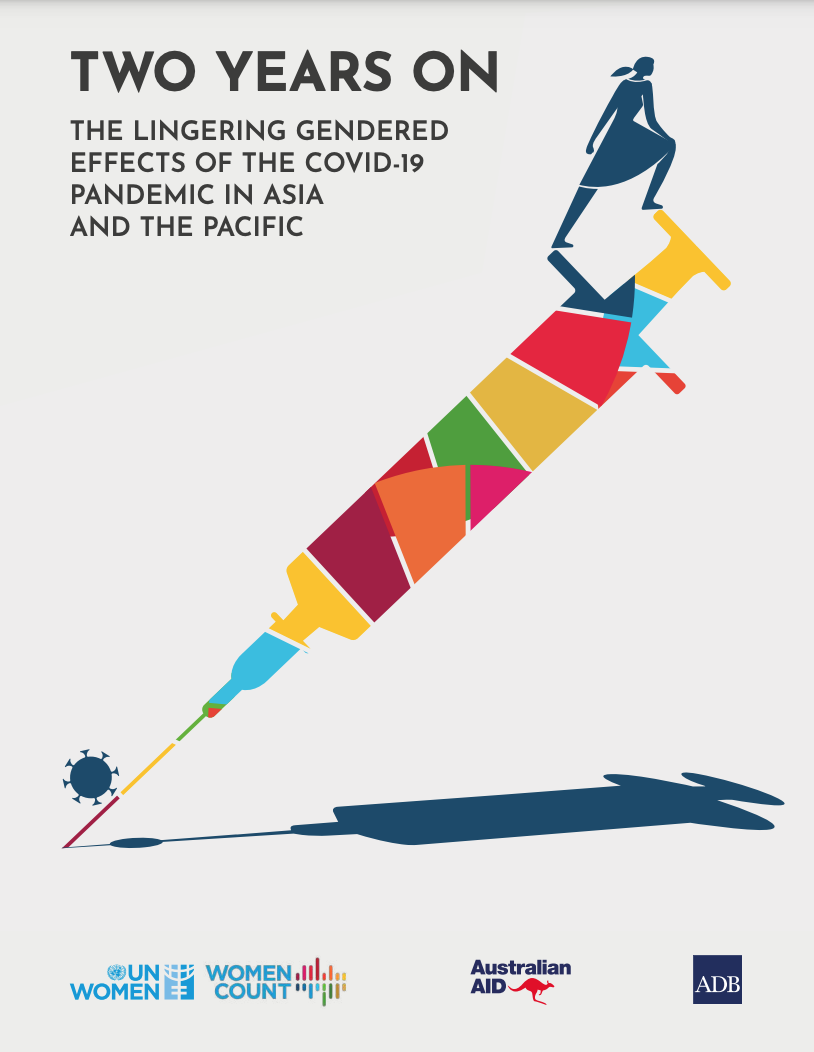
Two years on: The lingering gendered consequences of COVID-19 in Asia and the Pacific
Two years into the COVID-19 pandemic, the lingering effects of the crisis are multidimensional, even in countries where the virus did not spread widely. For women and girls, existing gender inequalities and socioeconomic barriers have only been exacerbated. To assess the gendered consequences of the pandemic, UN Women and the Asian Development Bank worked with…
-

Tracking increase in women’s employment in the renewable energy sector under NDC targets
In 2019-2020, the Global Green Growth Institute (GGGI) completed its Employment Assessment ofRenewable Energy Targets under the Nationally Determined Contributions (NEAR-NDC) Project. The project aimed to generate an evidence base for the link between Renewable Energy (RE) targets in NDCs and its required investments with employment generation to support and strengthen GGGI Member countries’ RE…
-
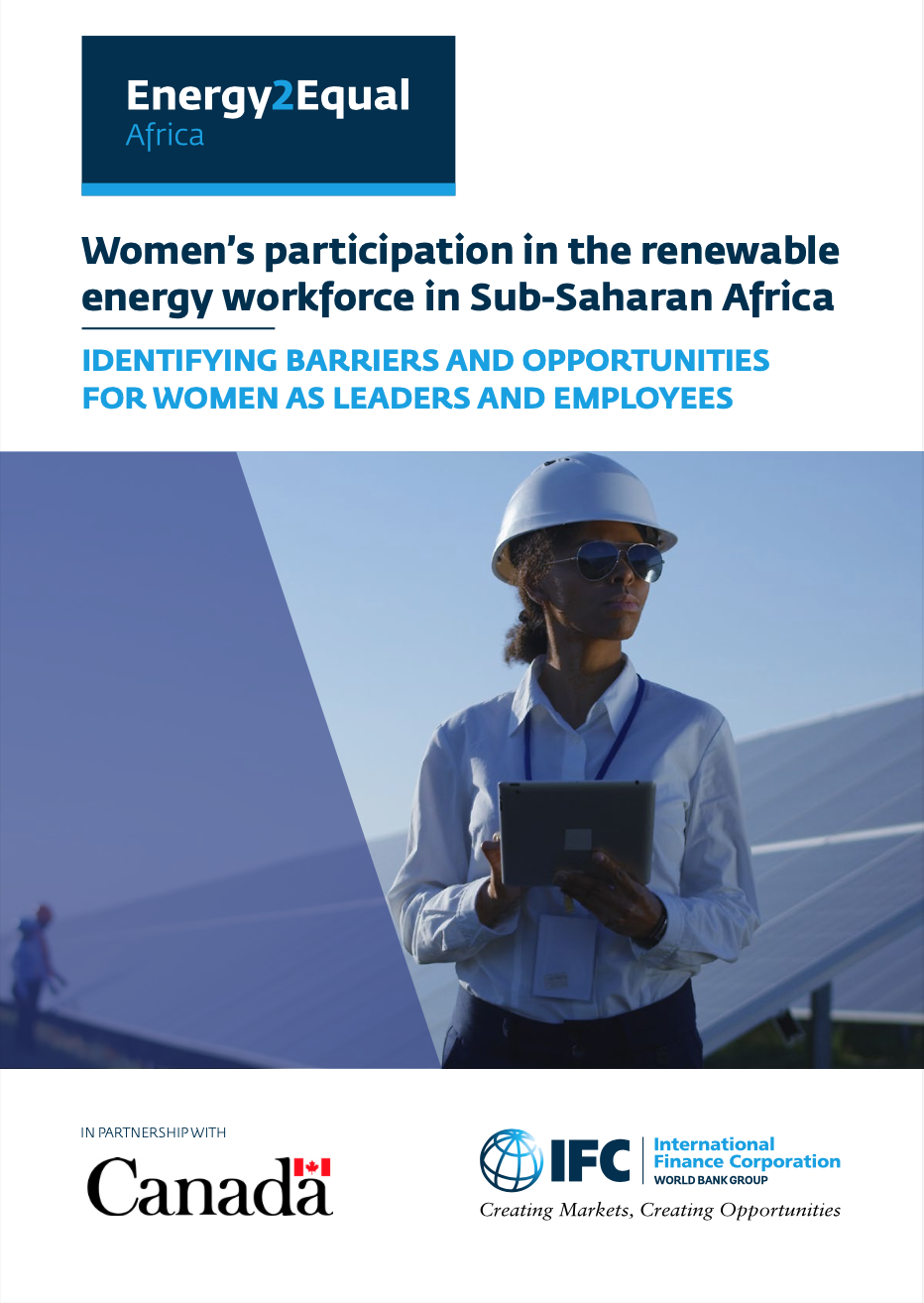
Women’s participation in the renewable energy workforce in Sub-Saharan Africa
This study found that women comprise about a quarter of company board members, executives, and managers in the RE sector. While women comprised about one third of RE sector workers, they were largely concentrated in corporate support functions. Only 13 percent of women had higher-paying science, technology, engineering, and mathematics (STEM)-related jobs, and 16 percent…
-
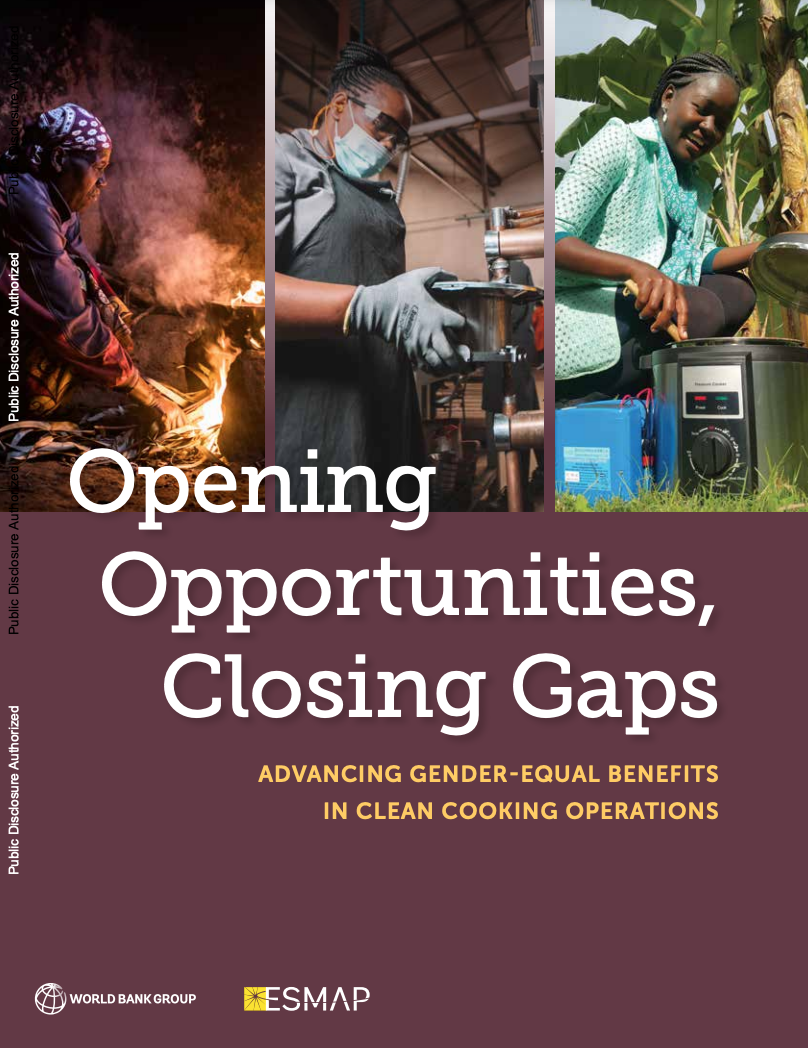
Opening Opportunities, Closing Gaps
At the current rate of ambition, the world will fall short of achieving sustainable development goal 7 (SDG 7) by 2030. Slow progress toward access to clean cooking solutions has significant negative impacts on women (for example, harm to health from disproportionate exposure to household air pollution (HAP); safety hazards and risks to well-being; and…
-
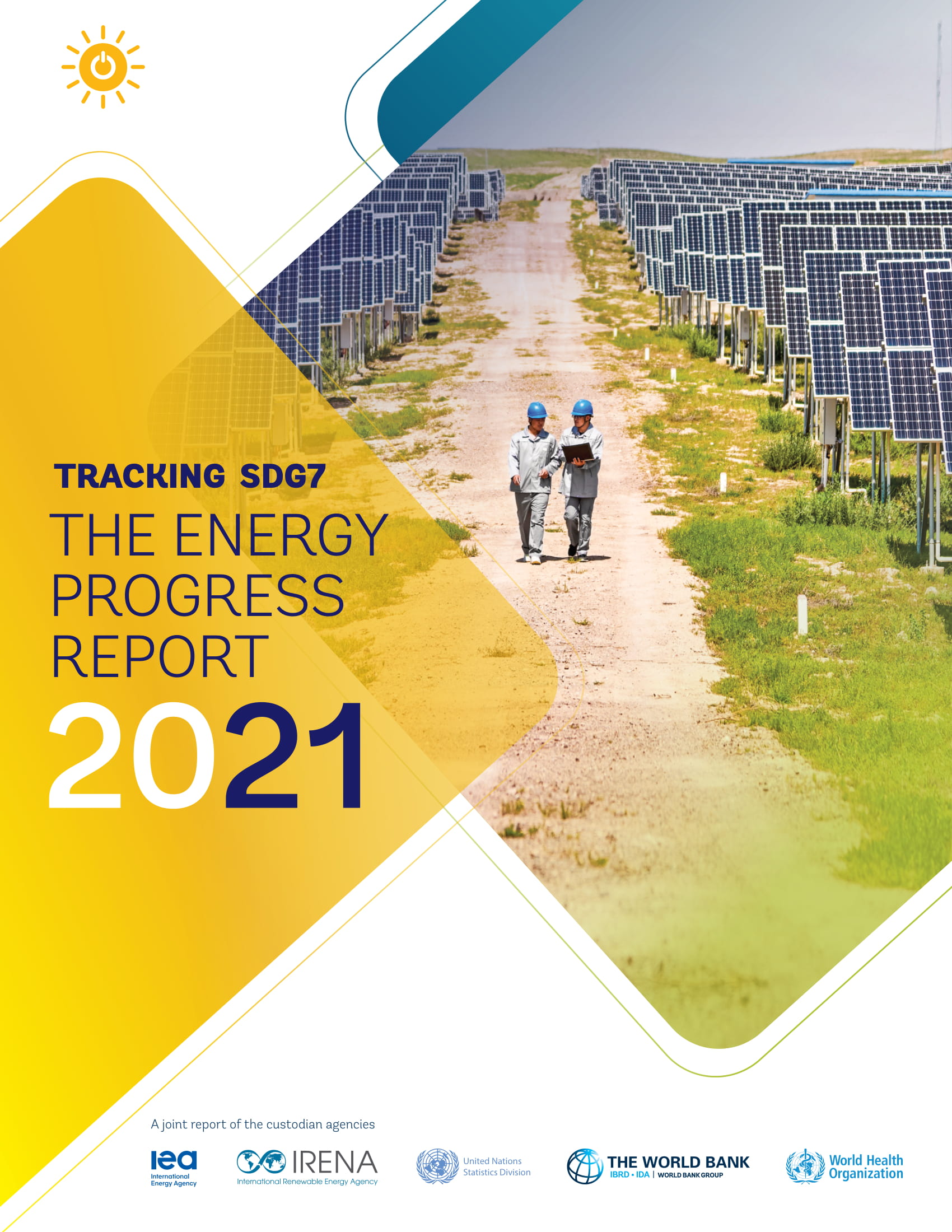
2021 Tracking SDG7 Executive Summary
The 2021 edition of Tracking SDG 7: The Energy Progress Report monitors and assesses achievements in the global quest for universal access to affordable, reliable, sustainable, and modern energy by 2030. The latest available data and selected energy scenarios reveal that at today’s rate of progress, the world is not on track to achieve SDG…
-
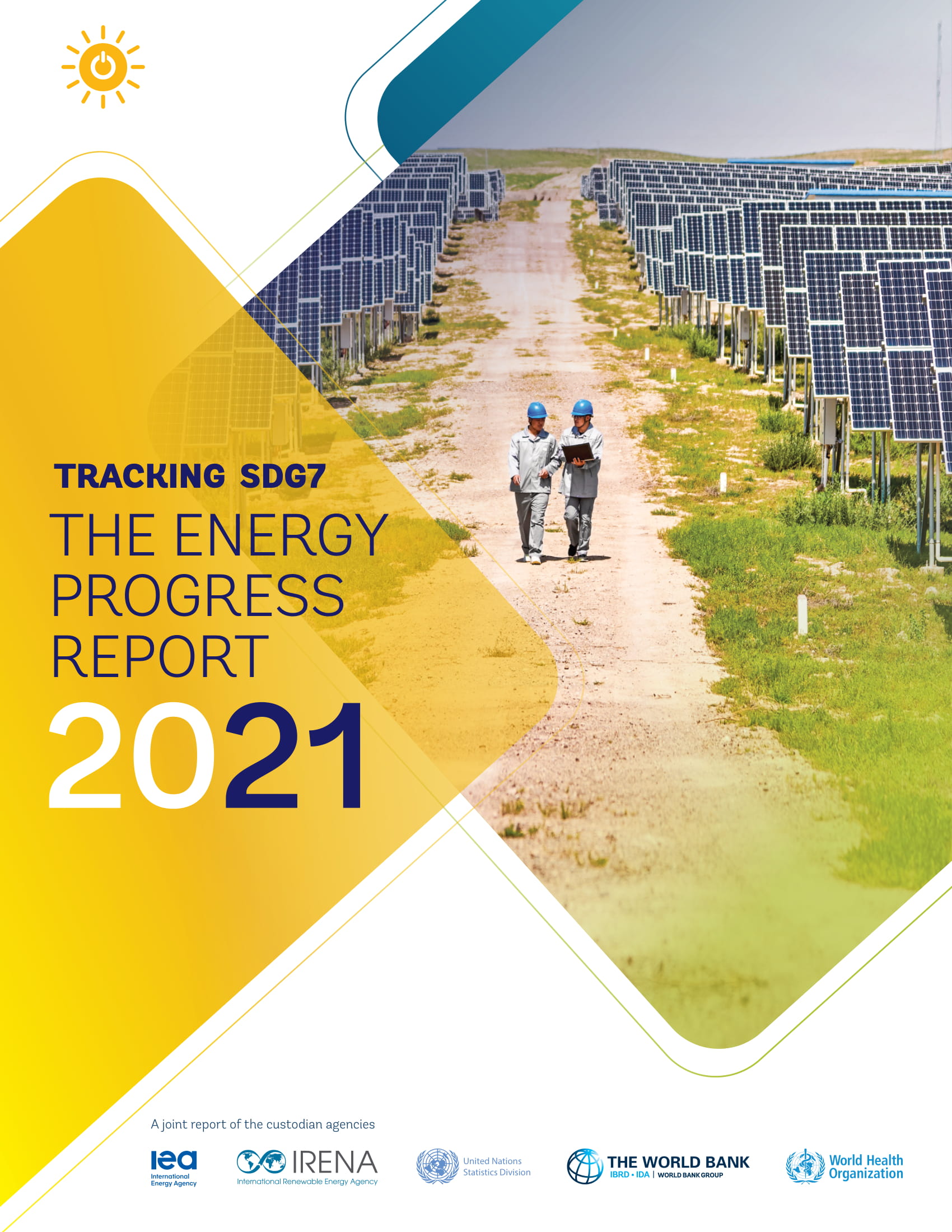
2021 Tracking SDG7 Report
The 2021 edition of Tracking SDG 7: The Energy Progress Report monitors and assesses achievements in the global quest for universal access to affordable, reliable, sustainable, and modern energy by 2030. The latest available data and selected energy scenarios reveal that at today’s rate of progress, the world is not on track to achieve SDG…
-
Gender-Responsive Electric Cooking in Nepal
Transition to clean cooking is necessary for protecting the health and lives of the 2.7 billion people who suffer from the health and environmental impacts of existing cooking practices. As cooking is typically a task that women engage in, understanding the barriers to and opportunities of a transition to electric cooking from a woman’s perspective…
-
A growth path model: An entrepreneurship growth pathway for women in last-mile communities
This report aims to create a theoretical framework to identify key stages in last-mile women entrepreneurs to formulate a growth path to develop latent subsistence entrepreneurs into transformative ones. It is organized into 7 sections. Section 1 contains an introduction into the project, the rationale, and the scope and limitations of the project. Section 2 describes…
-
Gender and energy at center stage in COVID-19 battle: Powering a more gender-equal recovery
Women are on the frontlines of the coronavirus pandemic. They need modern and affordable energy to keep up the fight and support the recovery, to make their communities and businesses more resilient for the next pandemic. The coronavirus crisis is putting an unprecedented and enormous strain on the global economy and public health systems, and…
-
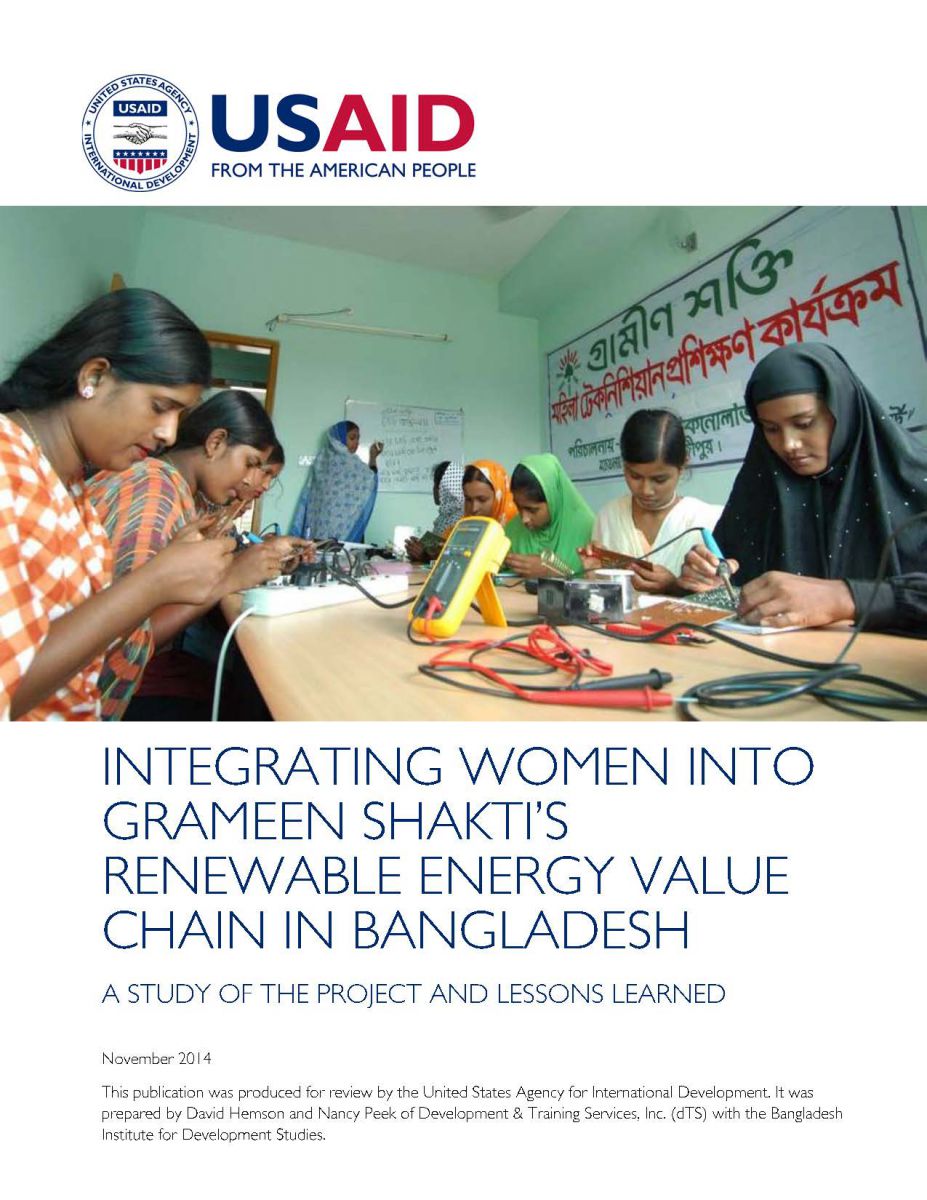
Integrating Women into Grameen Shakti’s Renewable Energy Value Chain in Bangladesh: A Study of the Project and Lessons Learned
This assessment report considers gender equality and women’s empowerment in Bangladesh, and covers a study focused on the USAID-funded Rural Empowerment through Renewable Energy project. This 15-day technological training for rural women in Bangladesh helped to integrate women into the Grameen Shakti (or GS, the leading renewable energy company in the country) renewable energy value…

